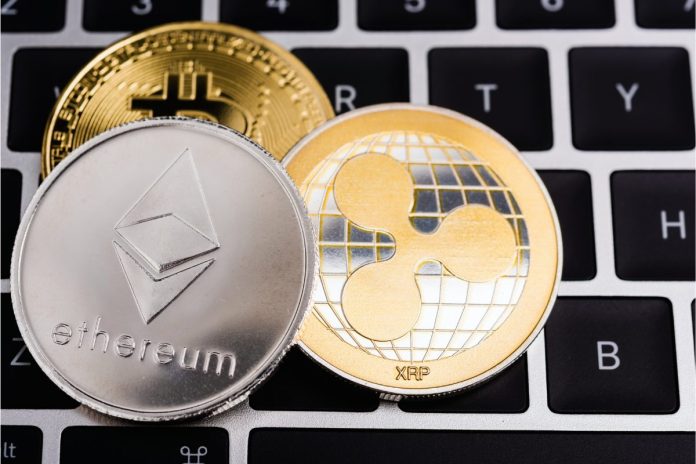When it comes to cryptocurrency, speed is a big deal, especially when you’re making transactions. Fast transaction times can make or break the user experience. That’s why XRP often takes center stage in conversations about efficiency.
Interestingly, XRP Price is closely tied to its utility, with its transaction speed being one of its standout features. But how does XRP measure up against other major cryptocurrencies like Bitcoin and Ethereum? Let’s dive in to find out.
What Makes Transaction Speed Important?
Imagine being able to send money across the world in a matter of seconds as opposed to days. That’s the promise of blockchain technology, but not all cryptocurrencies deliver the same level of speed. Fast transactions are crucial for everyday payments, business deals, and even large-scale financial settlements.
The speed of a transaction depends on several factors, like how the blockchain processes transactions, the network’s congestion, and the complexity of its consensus mechanism.
Cryptocurrencies like Bitcoin, Ethereum, and XRP have unique approaches to handling these processes, which is why their speeds vary so much. Let’s break it down.
XRP: The Speed Champion
The native cryptocurrency of the Ripple network, XRP, is made for quick and affordable international transfers. While Bitcoin and Ethereum focus on decentralization and smart contracts, Ripple’s main goal is to revolutionize the way money moves across borders.
XRP transactions typically take 3 to 5 seconds. Yes, you read that right—seconds! In contrast, depending on network congestion, Bitcoin can take anywhere from ten minutes to an hour. XRP achieves this incredible speed thanks to its unique consensus mechanism.
Instead of using energy-intensive proof-of-work (like Bitcoin) or the slower proof-of-stake, XRP relies on a consensus protocol where trusted nodes validate transactions. This process not only speeds things up but also keeps transaction costs extremely low.
Bitcoin: Reliable but Slow
Bitcoin is often called the king of cryptocurrencies, but speed isn’t its strong suit. On average, Bitcoin transactions take about 10 minutes to confirm. However, during times of high network congestion, like when demand spikes, the wait time can extend to an hour or more.
Because of its proof-of-work consensus process, which requires miners to solve challenging mathematical puzzles in order to validate transactions, Bitcoin operates more slowly. This method ensures security and decentralization but sacrifices speed.
Bitcoin’s transaction speed makes it less practical for everyday purchases, especially compared to XRP. However, it remains a strong choice for long-term investments and large, less time-sensitive transfers.
Ethereum: A Balance of Speed and Functionality
Ethereum is another major player in the crypto world, known for its smart contract capabilities. Transaction times on Ethereum average around 15 seconds to 5 minutes, depending on network activity.
Ethereum recently transitioned to a proof-of-stake consensus mechanism with the Ethereum 2.0 upgrade, which has improved its speed and reduced energy consumption. While it’s faster than Bitcoin, Ethereum still struggles with congestion during peak times, leading to delays and higher fees.
For developers and users who need smart contract functionality, Ethereum is a great choice. But when it comes to pure transaction speed, it still can’t compete with XRP.
Solana and Other Rising Stars
Some newer cryptocurrencies like Solana and Avalanche are stepping up in the race for speed. Solana, for instance, boasts transaction speeds as fast as 400 milliseconds, making it one of the fastest blockchains out there.
However, speed isn’t everything. While Solana’s transaction time is impressive, its network has faced occasional outages, raising concerns about reliability. XRP, on the other hand, has maintained a strong track record in terms of both speed and reliability.
Other fast cryptocurrencies like Stellar (XLM) and Algorand also offer impressive speeds, often processing transactions in a few seconds. Still, XRP’s established network and widespread adoption give it a significant edge.
Real-World Applications of Fast Cryptocurrencies
Speedy transactions aren’t just for bragging rights. They have real-world benefits. XRP, for example, is used by banks and financial institutions to facilitate cross-border payments. Ripple’s partnerships with major players like Santander and American Express show how XRP’s speed can make a difference in the global financial system.
Meanwhile, Ethereum’s relatively fast speeds enable developers to build decentralized applications (dApps), while Solana’s blazing speeds are appealing for gaming and high-frequency trading platforms.
Despite its slower speeds, Bitcoin is still seen as a reliable store of value and is frequently likened to digital gold.
Which Cryptocurrency Should You Choose?
Choosing the right cryptocurrency depends on your needs. If you’re looking for fast, low-cost transactions, XRP is hard to beat. Its speed and efficiency make it ideal for international payments and real-time settlements.
On the other hand, if you prioritize decentralization or need smart contract functionality, Ethereum or even newer options like Avalanche might be better suited to your goals. For long-term investors who value security and a proven track record, Bitcoin is always a solid choice, just don’t expect instant transfers.
Conclusion
In the world of cryptocurrency, transaction speed plays a critical role. While XRP leads the pack in terms of speed and efficiency, it’s important to consider other factors like use case, network security, and reliability.
Whether you’re a casual user or a seasoned investor, understanding the strengths and weaknesses of each cryptocurrency can help you make smarter decisions. Even if XRP may not always have a direct impact on pricing, its unparalleled transaction speed undoubtedly gives it a competitive advantage in the quick-moving cryptocurrency market. Now that you know how XRP stacks up against Bitcoin, Ethereum, and others, which one will you choose for your next transaction?



 Bitcoin
Bitcoin  Ethereum
Ethereum  Tether
Tether  XRP
XRP  Solana
Solana  USDC
USDC  Cardano
Cardano  TRON
TRON  Lido Staked Ether
Lido Staked Ether  Toncoin
Toncoin  Avalanche
Avalanche